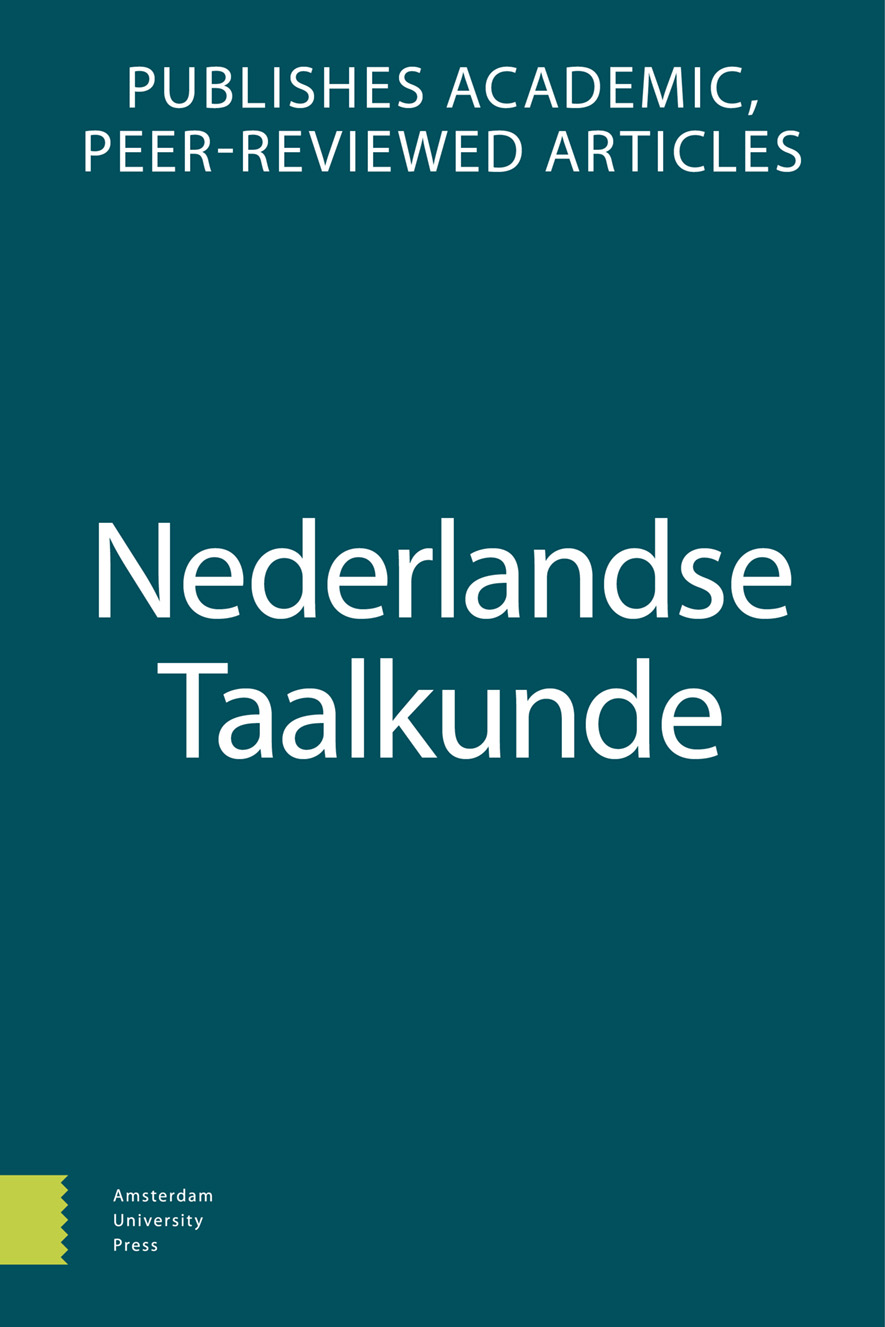-
oa Vrouwelijke persoonsnamen in het Nederlands
- Amsterdam University Press
- Source: Nederlandse Taalkunde, Volume 20, Issue 3, dec. 2015, p. 315 - 338
Samenvatting
Dutch Female Personal Names
In this paper I argue that the formation of female personal nouns in Dutch provides no argument for so-called ‘paradigmatic’ means of word-formation. In the literature (Van Marle 1985, 1986) it has been argued that these nouns in particular provide an argument for paradigmatic word-formation. More in particular, Van Marle observes that female nouns in –ster only exist if there is a neutral personal noun in –er. He therefore concludes that in order to form female personal nouns in –ster, the grammar needs to check whether there is an existing word in –er. However, it can be demonstrated that such means are superfluous once we acknowledge that –er is the realization of a more abstract morpheme, which potentiates the affixation of a morpheme deriving female nouns, realized as –ster. Second, that Dutch hosts a haplology rule that deletes –er immediately before –ster. Since haplology is independently motivated (see e.g. Yip 1998, Nevins 2012), the present contribution provides an argument against paradigmatic means for word-formation.


